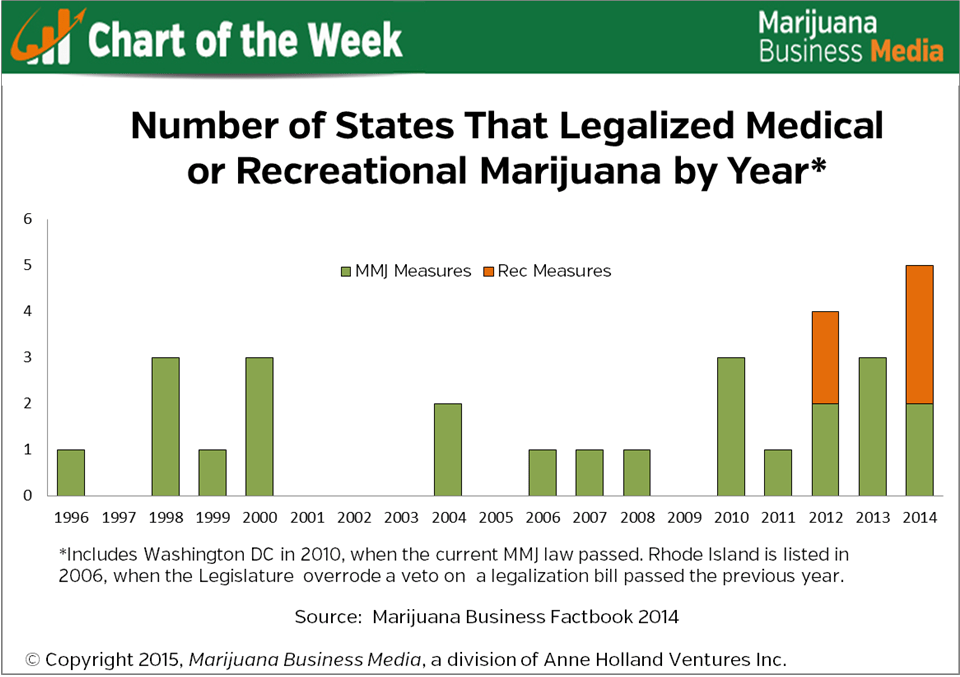By John Schroyer
Washington State’s recreational marijuana market is becoming an exemplar of capitalism at its simultaneous best and worst.
After battling a severe shortage of cannabis when retail sales launched in July, the state’s rec marijuana industry is now faced with a vast oversupply of growers and product.
As a result, recreational marijuana prices have plunged 40% from last summer until now, just two months after the first major harvest took place.
This has had a ripple effect across the state’s industry, giving rec shops more product to choose from for less, but also endangering scores of businesses.
Some could be forced to downsize significantly or even fold up shop completely. One store owner fears a massive wave of closures, saying he wouldn’t be surprised to see a 90% failure rate for the 370 licensed producers and processors in Washington.
“The script has been flipped from demand outpacing the supply to growers in the past few months having over-produced 10 times what’s being sold in retail stores,” said Ramsey Hamide, owner of the Main Street Marijuana rec shop in Vancouver, Washington.
He added that a lot of growers and processors are “absolutely scared to death.”
“I can name five or six farms that grew between 1,000 or 2,000 pounds, and they fully admit, ‘We’ve got 1,000 pounds sitting here we’re trying to sell right now,’” Hamide said.
Supply vs. Demand
Cannabis growers in Washington are getting desperate. So desperate that they keep dropping their prices, in the hopes of just being able to sell what they’ve harvested.
While that’s hurt growers, it has allowed stores like Main Street to load up on inexpensive cannabis.
“The last big purchase I made was at $6 a gram. The guy came back two days ago, said, ‘Would you want more at $4.50?’ I said, ‘I’ll take more at $3 a gram.’ And I bought another 10 pounds,” Hamide said in December. “(Growers have) been bringing us product for $1, $2 a gram.”
“Instead of taking whatever you get, we’re able to sample some stuff…to make sure it’s the right stuff to put on our shelves,” Bratton said, adding that he’s very pleased with the situation but is also concerned for the livelihoods of many in the cultivation business.
In recent months, Bratton said, business has picked up to the point where both of his company’s rec shops are seeing an average of 100 customers a day. Contrast that with September, he said, when processors were bringing in pre-packaged cannabis that sold at a minimum of two grams at $55, and customers are much happier now.
“That killed us in the first month,” Bratton said.
Storm Coming for Cultivators
But what’s helping rec shops is hurting growers.
Life Gardens Chief Executive Officer Greta Carter, who’s been in the cultivation business since its legal inception last year in Washington, said she’s constantly reevaluating her business model to make sure her company is able to stay afloat.
“We’re meeting our forecasted goals right now, but we’re concerned about the ability to sustain that each month. It’s going to be a volatile market for a year, two years perhaps, before things stabilize,” Carter said. “Every day, I’m checking our expenses and where we can be cutting costs and where we can be efficient with our size, to just ensure that we can survive the storms that are ahead of us. Because it’s only going to get worse before it gets better.”
This is markedly different than the trends that played out in Colorado, the nation’s first recreational cannabis market. Prices there have been much more stable since adult-use sales began in January 2014, in part because the state approached the rec industry differently than Washington but also because it didn’t face the same supply and demand challenges.
The Washington Liquor Control Board, which oversees the state’s rec marijuana industry, has a small bit of good news for cultivators desperate to unload excess product – there are 23 more stores that could be open within a matter of days, said spokesman Brian Smith. That would represent a roughly 25% increase in the number of outlets, as there are 89 currently in operation,
Even so, that probably won’t prevent at least some growers from going out of business – which also happened in Colorado, even though the state didn’t deal with the same issues Washington is facing.
“Just because you grow it, doesn’t mean that everyone is going to want to buy it,” Smith said. “So not everyone’s going to make it in this market.”
Possible Help from MMJ Dispensaries?
Rec business owners hope the state Legislature passes regulations on the medical cannabis industry soon, which could also help alleviate some of the pressure on growers since there are hundreds of unlicensed MMJ dispensaries and growers scattered across Washington.
“I’m confident that will be resolved, but it will take a few months,” Carter said.
Either way, Bratton said he hopes that prices will stay where they’re at, for the sake of all involved – grower, vendor and customer alike.
“I don’t see why prices should (go back up). I think we’re at the price point we should be at,” Bratton said. “The growers who are going to last are going to be the ones who will be able to provide a quality product and make it work at that price with their business model.”
John Schroyer can be reached at johns@mjbizmedia.com




